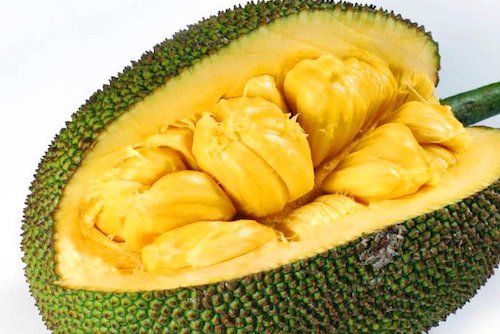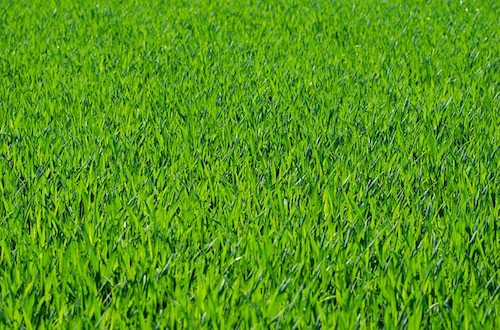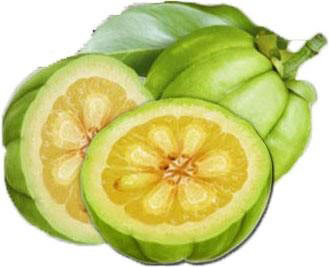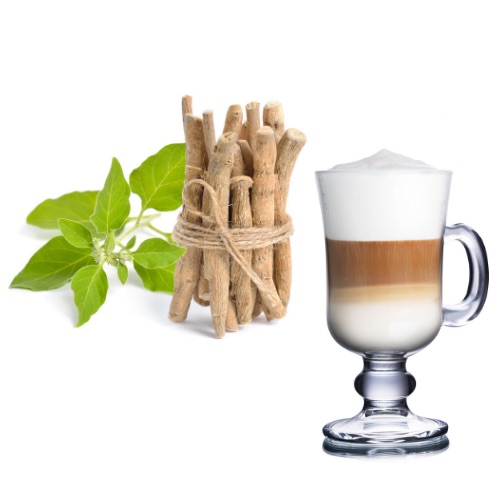Studies and Research have shown that zinc is an essential element to maintain the sexual health and fertility of men and women. This micronutrient is being used as medicine in Ayurveda for erectile dysfunction and Premature ejaculation.
Related article Ayurvedic Food for Testosterone
Table of Content
Zinc (jasada Bhasma) and Ayurveda
Zinc (Jasada Bhasma) for PCOS or PCOD
Zinc (Jasada Bhasma) for Erectile Dysfunction
Ayurvedic Herbs and Vegetarian Foods Rich in Zinc
There are approximately 1.4 to 2.3 grams of zinc in the average human adult body. The majority is stored in the liver, pancreas, kidney, bones, skeletal muscles, eyes, prostate gland, semen, skin, hair, fingernails, and toenails.
Zinc (jasada Bhasma) and Ayurveda
Zinc is an essential mineral that plays a very important role in maintaining body health. Our Ayurveda acharyas were aware of this fact thousands of years ago. The body can’t make zinc on its own, so we must make this mineral available to the body through food sources. Zinc is stored in the muscles, blood cells, the retina of the eye, skin, bone, kidney, liver, pancreas, and prostate gland
Zinc helps the immune system function properly and boosts its efficiency. Our body cells need this mineral for their growth and division. This mineral also helps in wound healing, carbohydrate metabolism, and maintenance of our sense of smell and taste. Zinc is also necessary for the formation of insulin in beta cells of the pancreas. (Various types of research are going on in evaluating the role of zinc in preventing diabetes). This mineral also acts as an antioxidant and nullifies the effects of free radicals which damage the cells of our body.
Zinc is required for all digestive enzyme production, rebuilding of the fast-growing intestinal tissue, production of bile, liver, and pancreatic secretions. Ulcers, irritable bowel syndrome, yeast infections, colitis, and many other digestive problems often have to do with low zinc status. A normal copper-to-zinc ratio is required to give flexibility to the arteries and veins. Imbalances could cause; hardening of the arteries, high blood pressure, aneurysms, strokes, heart attacks, and other cardiovascular problems.
Zinc’s importance is recognized through the activity of over 300 enzymes, it is involved in most major metabolic pathways. The immune system depends on zinc in almost every aspect. Zinc has an inverse relationship with copper in the body, they are synergistic with one another in terms of immune response and connective tissue, while they are antagonistic in the small intestine where they will compete for absorption. This means that as zinc goes down, copper goes up, and vice versa. Adequate copper levels are essential for the growth of new blood vessels, wound healing, recovering from heart attacks and strokes. When levels are only slightly above normal physiological amounts, copper can be toxic. Any mild abnormality or impairment of liver function can lead to copper excess.
Researches uphold health benefits of jasada bhasma or processed zinc https://www.researchgate.net/publication/258850285_Anti-diabetic_activity_and_safety_assessment_of_Ayurvedic_medicine_Jasada_bhasma_zinc_ash_in_rats
Does Ayurveda Mention Zinc?
Yes, Ayurveda recommends the use of preparations that have zinc as an ingredient, to treat diabetes, erectile dysfunction, low sperm count, low sperm motility, PCOS or PCOD, and female infertility.
Zinc also known as Yashada or Jasada is mentioned in ayurvedic pharmacology. The ash of zinc which contains zinc in the required quantity is used in ayurvedic preparations. This ash of zinc is known as Yashada Bhasma or Jasada Bhasma. This is used in conditions like diseases of the eyes, diabetes, anemia, bronchitis, male infertility, and female infertility.
For PCOS or PCOD
Young women with PCOS often have elevated insulin levels and are more likely to develop diabetes. Insulin is a hormone produced by the digestive organ pancreas. When the level of glucose is high in the blood, insulin stimulates the body cells to absorb glucose from the blood. Cells that have absorbed the glucose convert it to energy. This energy is used for our daily activities.
Sometimes body cells fail to respond to insulin. In this condition the blood glucose level increases and leads to diabetes.
In young women with PCOS, high insulin levels can cause the ovaries to make more androgen hormones such as testosterone. This can cause increased body hair, acne, pimple, and irregular or few periods. Having insulin resistance can increase the risk of developing diabetes. PCOS also causes depression, hair loss, dry skin, and unhealthy skin. It also leads to weight gain and dips in fertility.
Yashad bhasma helps to increase the sensitivity of cells to insulin. Thus it prevents the elevation of blood sugar levels. This helps to control PCOD or PCOS.
Texts of Ayurveda eulogize the benefits of Yashad Bhasma in female infertility. Ayurveda acharyas recommend using this mineral along with other herbs like Ashoka, Lodhra, Turmeric, Bitter Gourd, Shilajit, and Cinnamon. Hence qualified experienced doctors at Ayurhelp have combined yashad bhasma with all these herbs and formulated CAPSULES for PCOS which are the best ayurvedic remedy for PCOS.
These capsules are used as an ayurvedic treatment for PCOS another female fertility-enhancing ayurvedic capsule.
In women, PCOS or PCOD In PCOS body cells are resistant to insulin. Studies done by many health professionals have shown that minerals such as magnesium, selenium, chromium, and zinc are important to control chronic inflammation and insulin dysfunction. Chronic inflammation and insulin dysfunction are mainly found in PCOS (Polycystic Ovarian Symptoms). PCOD or PCOS can also cause depression. But zinc addresses almost all symptoms exhibited in PCOS.
For Erectile Dysfunction
Many studies have shown that deficiency of zinc is directly related to low testosterone levels. Zinc is needed for the production of testosterone. Zinc deficiency causes a low level of testosterone. This in turn causes klaibya or erectile dysfunction in men. Hence men are recommended to consume foods that are rich in zinc.
For Sperm Health
Healthcare experts think that zinc plays a major role in the development of sperm or spermatogenesis. Many new findings show the elevation of zinc levels in the testes during spermatogenesis. Also, they have found that a deficiency of zinc may cause low sperm count and motility. Hence male infertility is also treated with zinc supplements along with other medications. Zinc acts as an anti-oxidant and prevents oxidative damage that happens to sperms. Oxidative damages lower the quality of sperm. A comparison between the semen of fertile and infertile men showed an increased presence of zinc in the semen of fertile men.
For Diabetes
In diabetic patients, Zinc supplements improve blood sugar control and decrease HbA1c levels. Zinc prevents cellular damage in the pancreas. This ayurvedic zinc compound can be used as a zinc supplement to keep diabetes under control. This has to be used after consulting a qualified ayurvedic doctor.
Diabetic men also suffer from ED and low sperm count. Yashad bhasma is a boon to them as it does the dual function of improving sexual function, boosting fertility, and controlling diabetes.
For Skin and Hair
This compound helps to heal acne and pimples. It is very useful in wound healing. This can be used for back acne and scalp acne. It improves fairness and the glow of the skin. Ayurveda vaidyas recommend its use in psoriasis also.
It is very helpful to control hair loss which occurs due to PCOS and zinc deficiency. Yasad bhasma promotes hair growth.
How does Zinc Deficiency Occurs?
High amounts of copper, iron, and phytates in the diet will limit the amount of zinc we absorb in the intestine, therefore, putting us on a path to zinc deficiency. During exercise, we tend to sweat which can further deplete our zinc stores (including magnesium and other important minerals). It is, for this reason, health experts recommend, an active athlete include quality protein sources in the diet such as lean meats which are the highest sources of zinc (additional supplementation may be necessary).
What Happens in Zinc Deficiency?
According to Stefan – Symptoms of deficiency can occur in the form of stretch marks on the skin, varicose veins, and many cases of acne, dermatitis, eczema, psoriasis, boils, vitiligo, skin infections, and others. Check for white spots under the fingernails as these can also indicate a zinc deficiency (although not exclusive only to zinc).
When the copper/zinc ratio is in favor of copper, acne may develop and may indicate a need for additional supplementation.
Conditions including prostatitis, enlarged prostate, prostate cancer, and other metabolic conditions related to male infertility are definite signs of a zinc imbalance in the body. This also includes erectile dysfunction and some male hormone imbalances such as low testosterone and perhaps other hormone-related conditions in men. Visionary problems as the eyes require large amounts of zinc to function. The retina of the eye is one of the richest tissues in zinc in the human body and one of the tissues most dependent on zinc, along with the male prostate gland and the intestines.
As mentioned earlier zinc has a calming effect on neurotransmitters, problems we encounter in today’s society such as hyperactivity, irritability, nervousness, moods swings, and anxiety can be related to zinc.
What happens if you take zinc in excess?
The current daily value (DV) for Zinc is 15mg . Consuming zinc more than the required level causes nausea, vomiting, diarrhea, and stomach cramp.
Be aware however no matter how beneficial one nutrient can be if taken excessively it can throw the body out of homeostasis and cause a further array of problems. Signs of chronic zinc excess include; prostatitis, visionary problems, skin problems, digestive upset, and blood sugar problems (notice that signs of toxicity look a lot like signs of deficiency).
Ayurvedic Herbs and Vegetarian Foods Rich in Zinc:
The most abundant sources of zinc are found in red meats, poultry, seafood, and free-range eggs. It is slightly scarcer in vegetarian sources, and even more difficult to digest due to enzyme inhibitors. It is critical to monitor your zinc status if you are on a long-term vegan diet and if necessary include additional zinc supplementation.
Animal foods are better sources of zinc than plant foods. Foods high in zinc include oysters, pork, chicken, beef, and lamb.
Among the highest vegetarian sources of zinc are pumpkin seeds and seaweeds. Apart from these two toasted wheat germ, spinach, carrots, pumpkin seeds, squash seeds, nuts, dark chocolate, beans, and mushrooms.
Disturbances that happen in the body due to zinc deficiency
- Hair loss,
- Eye and skin lesions
- Delayed wound healing,
- Hypogonadism
- Impotence.
- slow growth in children
- trouble fighting off illnesses
- weight loss
- lack of appetite
Hence include zinc-rich food in your diet. Eat healthy food. Let food be your medicine.
(WhatsApp Dr.Savitha Suri @+ 91 6360108663/ to know more about ayurvedic treatments and remedies )
Author: Dr.Savitha Suri , Consultant Ayurvedic Physician
Call us at +91 9945995660 / +91 9448433911
Whats App + 91 6360108663/






